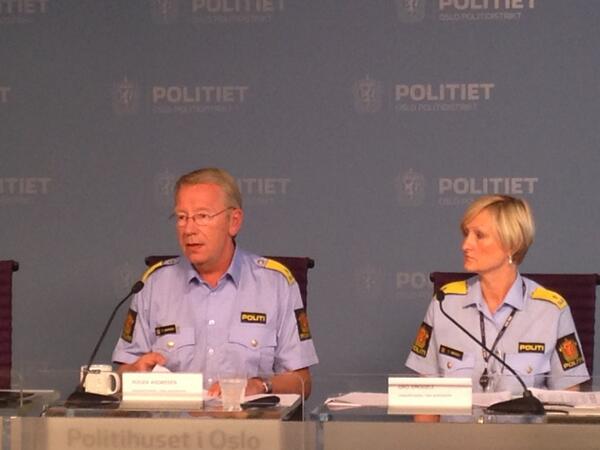In the first half of 2014, the number of crimes registered in Oslo dropped by 9.2 percent, 104 fewer robberies were reported, cases were resolved faster and incidences of pickpocketing dropped dramatically. There was also less violence, rape and murder, said Oslo police’s deputy chiefs when they presented the half-yearly review on Friday.

Despite significant ongoing population growth in Oslo the latest statistics showed a decrease in crime, reported newspaper Aftenposten. Police registered 38,372 reports, down 9.2 percent on the first six months of 2013. The number of murders fell from six to two, although the number of attempted murders rose from eight to 14 cases. Knife-related episodes dropped by 34 percent, and 77 rape cases were reported, 20 fewer than the same time last year. Domestic abuse cases increased from 239 to 287, but police believed the figures showed an increase in reporting, rather than an increase in abuse.
Police were particularly pleased with a sharp drop in pickpocketing around the capital. A special taskforce was set up to target professional gangs after pickpocketing reached an all-time high in 2012, with 17,950 thefts over the whole year. The figures from the first half of 2o14 revealed 5,285 people reported pickpocket thefts, 2,000 fewer than the same period last year and more than 4,000 fewer than in the first half of 2012.
“I would say that the primary reason is the police’s targeted efforts against the pickpocketing problem,” the taskforce head, Roar Kvassheim, told Norwegian Broadcasting (NRK). “Our taskforce’s main objective is to take pickpockets. We have become better-acquainted with the pickpocketing problem in Europe, and we have set up direct measures against core issues. We have looked more closely at how and when the stealing happens most, and used among other things civilian police officers to patrol in these actual areas. It’s given results.”
Kvassheim said most pickpockets were foreigners, and the majority came from Romania. He said their favourite locations were not just downtown, but at shopping centres on the outskirts of the city where elderly and disabled shoppers were often targeted. He said thieves watched victims to observe their bankcard pin codes, before snatching handbags, mobile phones and wallets.
One of Oslo’s deputy police chiefs Roger Andresen said their methods were working, because the biggest decline had been seen in the areas the taskforce had prioritized. When the project started, Oslo was one of the worst cities in Europe for pickpocketing. “The most important thing for us is to make the risk of being caught so great that the pickpockets choose other places,” he told NRK. “The signals that we’re getting point to that. Now we have a reverse trend in Oslo than many European capitals are experiencing. While pickpocketing is increasing in other European cities, we have had a sharp downturn in Oslo.”
Progress on muggings and burglaries
“We’re spending a lot of resources on serious types of crime also,” said Andresen. “But we are very aware that this type of criminality that affects people and creates such great insecurity should be prioritized. The same applies for home break-ins and robberies.”
Muggings were also a serious problem last autumn, with 58 robberies on the streets of Oslo in November alone. The figures for the first half of 2014 were down 23 percent from the start of 2013, from 450 to 346. “We also saw a similar effect after the establishment of a special taskforce against home burglaries in 2010,” Andresen told Aftenposten. “Since that time reports of break-ins in Oslo have almost fallen, and after the first half of the year these numbers are steadily low compared to the same period last year.”
The resolution rate of crimes increased slightly, with police solving 26.3 percent of cases, up from 25.7 percent. The time it took to resolve those crimes also improved, with average case processing times decreasing by 25 days on the same time last year. “It is positive that the resolution rate is on the way up,” said Oslo’s other deputy police chief, Gro Smogeli.
However, one in four cases is still dropped by police.
newsinenglish.no/Emily Woodgate

